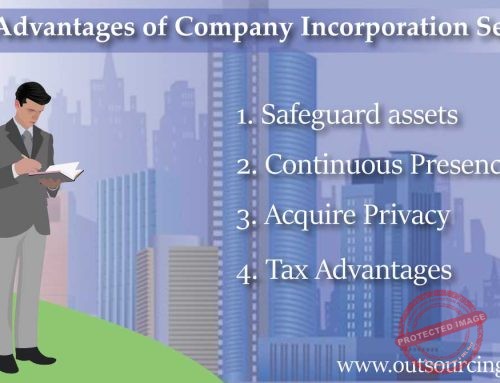A limited company is a popular type of business structure in many countries because it provides limited liability protection to its shareholders and directors, meaning their assets are not at risk in the event of the company’s financial difficulties or insolvency.
Once established, a corporation has its legal personality independent of its owners and is in charge of managing its a corporation has its legal personality independent of its owners and is in charge of managing its own money, debts, and legal responsibilities. Limited firms are subject to a variety of rules and procedures, including yearly reports to the government and adherence to tax laws.
Overall, forming a limited company can benefit business owners significantly, including little liability protection, enhanced credibility with customers and suppliers, and potential tax advantages.
Consequently, it’s a common question, “How to Establish the Process of Forming a Limited Company?”
Forming a limited company involves registering the company with Companies House and obtaining the necessary business licenses and permits. Once the paperwork is completed, you will also need to set up a business bank account and register for
Let’s discuss it below!
A Guideline To Establish the Process of Forming a Limited Company
Establishing the process of forming a limited company involves several important steps. Firstly, you must choose a name for your company that meets the legal requirements in your jurisdiction.
Next, you must decide on the type of limited company structure that is most suitable for your business, such as a private limited company or a public limited company.
You must also designate at least one director and one shareholder for your limited business, as well as draft the memorandum and articles of association, which explain the firm’s goals, rules, and regulations.
Once these steps are completed, you must register your limited company with the relevant government authorities and obtain any necessary licenses or permits.
It is also critical to open a business bank account to manage your funds and meet continuing legal and regulatory requirements, such as filing yearly reports and tax returns.
Limited Company Formation Cost
Forming a limited company usually costs about $100 – $500 depending on the complexity of the company formation process.
The costs typically include the following:
- Company name search & registration: $50 – $150
- Filing of Articles of Incorporation: $25 – $50
- Filing of Statement of Information: $25 – $50
- Payment of state filing fees: $50 – $200
- Obtaining an Employer Identification Number (EIN): $0 – $25
- Obtaining a business license: $0 – $100
- Obtaining a registered agent: $50 – $100
- Drafting of company bylaws: $50 – $250
- Initial shareholder or member meeting: $50 – $100
Total: $300 – $1025
Benefits of Incorporating as a Limited Company
There are several benefits of incorporating as a limited company, including:
1. Limited Liability Protection
One of the primary advantages of founding a limited company is that it gives limited liability protection to its shareholders and directors. This implies that their assets are not in danger if the firm falls into financial difficulties or goes insolvent.
2. Credibility
A limited company can boost your firm’s reputation because it is a recognized legal entity with a registered name and location. This can help you attract consumers, suppliers, and investors.
3. Tax Efficiency
Limited companies can be more tax-efficient than other business structures, as they are subject to lower rates of income tax and can deduct business expenses from their profits before paying tax. This can help to reduce your overall tax bill.
4. Continuity
A limited company is legally distinct from its owners, which means it may continue to operate even if its shareholders or directors change. This can improve the business’s continuity and stability.
5. Opportunities for Growth
Incorporating as a limited company can provide growth opportunities, as it can make it easier to raise capital through the sale of shares or by borrowing money from banks or investors.
Company Formation Tax Obligations and Considerations
When forming a limited company, there are several tax obligations and considerations to be aware of. Here are some key points to keep in mind:
1. Corporation Tax
Limited companies are required to pay corporation tax on their profits. The corporation tax rate can vary depending on the jurisdiction where the company is incorporated.
2. VAT
If your limited business sells goods or services and its yearly revenue exceeds a specific level, you may be compelled to register for VAT and charge VAT on your sales. In addition, you will be able to recover VAT on business costs.
3. PAYE
If your limited company employs people, you must run a payroll system and deduct income tax and National Insurance payments from their compensation. You will also be required to make National Insurance contributions as an employer.
4. Dividend Tax
Dividend tax applies if you pay yourself or other shareholders dividends. Dividend tax rates differ based on the jurisdiction and amount of dividends paid.
5. Capital Gains Tax
If your limited company sells an asset that has increased in value, such as property or shares, it may be subject to capital gains tax.
6. Personal Tax Obligations
If you are a director of a limited company, you will need to file a personal tax return and pay income tax on any salary or dividends received from the company.
Conclusion
Setting up a limited company can be a great way to start a business. It offers protection from the business’s liabilities, allows you to create a corporate identity, and can facilitate raising capital.
However, it is important to consider the associated costs and legalities before deciding to form a limited company. It is also important to ensure that you understand the responsibilities and obligations of being a shareholder or director of a limited company.
FAQs
How do I form a limited company?
To form a limited company, you need to follow these steps:
- Choose a company name and check that it’s available
- Decide on the company’s directors and shareholders
- Register the company with Companies House
- Set up a business bank account and register for taxes
What are the disadvantages of forming a limited company?
The main disadvantages of forming a limited company are:
- Higher administrative and compliance costs compared to sole traders and partnerships
- More complex legal and tax obligations
- The requirement to file annual accounts and other regulatory documents with government authorities
- Less privacy, as certain information about the company, such as its directors and shareholders, is publicly available.
How do I change the directors or shareholders of a limited company?
To replace the directors or shareholders of a limited company, you must file the necessary documents with Companies House and amend the business’s records. This often entails completing paperwork such as Form AP01 for appointing a new director, Form TM01 for terminating a director’s appointment, and Form SH01 for issuing new shares or transferring existing shares.






